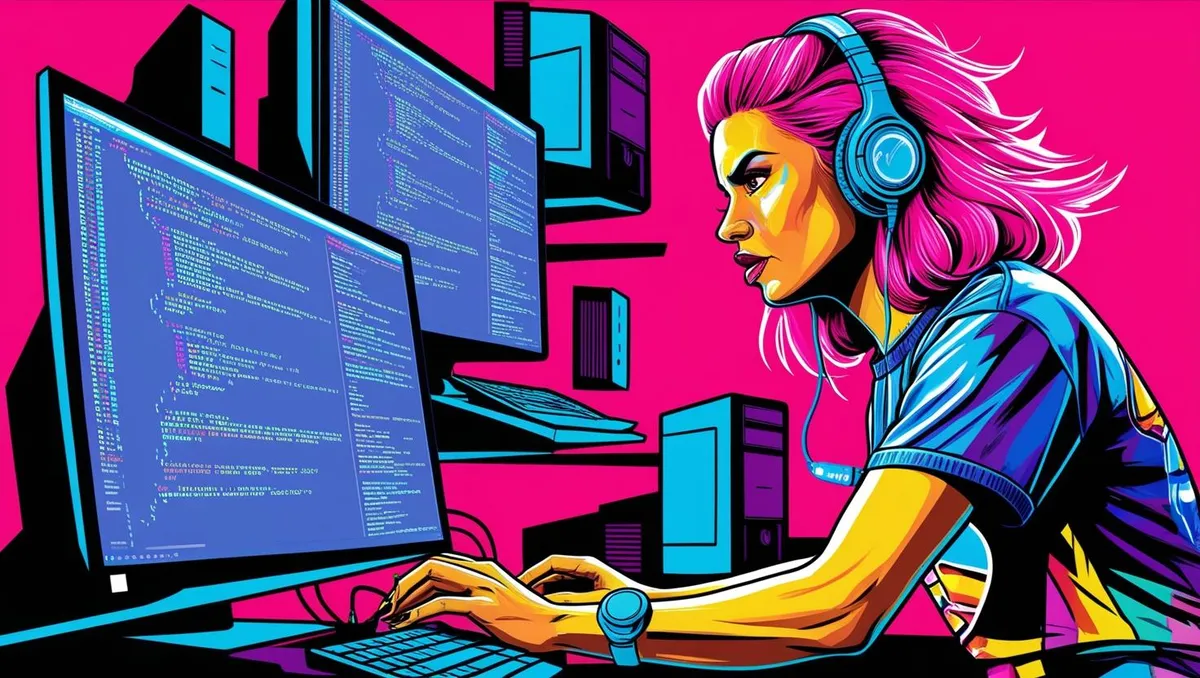
10 Things I've Learned as a Cybersecurity Newbie
2025-01-16
Breaking into cybersecurity has been a wild ride—exciting, frustrating, and full of “aha!” moments. Coming from a non-tech background, I had no idea what to expect, and I’ve learned a ton along the way. If you’re new to cyber (or thinking about making the switch), here are 10 things I wish someone had told me sooner.
1. Failure is Part of the Process (Seriously, Just Expect It)
Cybersecurity is all about problem-solving, and guess what? Solving problems means failing over and over until you get it right. I sucked at memorizing acronyms, struggled with tools, and bombed practice tests. But every time I failed, I learned something. If you’re not messing up, you’re not pushing yourself enough.
2. Networking is a Game-Changer
I used to think job hunting was all about sending out résumés and waiting. Nope. Networking is everything. Some of the best opportunities come from connecting with people in the cybersecurity community—whether on LinkedIn, BlueSky, or even TikTok. I started engaging with posts, asking questions, and sharing my journey—suddenly, doors started opening. Cyber folks love helping newcomers, just put yourself out there!
3. Certs Are Cool, But Hands-On Learning Is King
You can collect all the certs in the world, but if you don’t know how to actually do the thing, it won’t matter. I learned that the hard way. Instead of just reading, I started hacking things on TryHackMe, messing around in labs, and actually applying what I learned in my every day life. That’s when everything started clicking. Get your certs, but don’t skip the hands-on practice.
4. OSINT is Basically a Superpower
Open-Source Intelligence (OSINT) is one of the most underrated skills in cybersecurity. It’s not just for hackers—it’s useful for threat intelligence, investigations, and even job hunting. Learning to dig up info with Google Dorking, Shodan, and Maltego has been eye-opening (and mildly terrifying). If you love detective work, you’ll love OSINT. I’m slowly becoming obsessed with it.
5. Soft Skills Matter More Than You Think
Cybersecurity isn’t just about hacking—it’s about communication, problem-solving, and teamwork. My teaching background gives me an edge because I already know how to break down complex topics, think on my feet, and manage chaos (high schoolers were basically my first incident response team). Don’t sleep on your soft skills—they can set you apart.
6. Cybersecurity Is More Than Just Hacking
Before diving in, I thought cybersecurity = Hollywood-style hacking. Turns out, there are so many different paths:
- Incident Response (IR) – Fighting off cyberattacks in real time.
- Threat Intelligence – Tracking bad guys and predicting attacks.
- GRC (Governance, Risk, Compliance) – Making sure organizations follow security rules.
- Blue Teaming (Defense) – Stopping attacks before they happen.
You don’t have to be a hacker to thrive in cyber—there’s something for everyone.
7. Stay Curious, Stay Learning
Cybersecurity never stops changing, and if you don’t keep learning, you’ll get left behind. I try to:
- Follow cybersecurity news (Krebs on Security, The Hacker News).
- Watch YouTube pros (John Hammond, NetworkChuck, STÖK).
- Play around with new tools just for fun.
This field rewards curiosity—so don’t be afraid to go down rabbit holes!
8. Document Your Journey (Even If You Think No One Cares)
At first, I felt weird about posting on LinkedIn or sharing what I was learning. But documenting my journey has helped solidify my knowledge, connect with amazing people, and even land opportunities. It doesn’t have to be fancy—just write about what you’re learning. You never know who it might help (including future you).
9. Imposter Syndrome Is the Worst, But It’s Lying to You
I can’t tell you how many times I’ve thought, “I don’t belong here.” But here’s the thing: EVERYONE in cybersecurity feels that way at some point. Even pros with decades of experience doubt themselves. The trick is to keep going anyway. If you’re putting in the work, you belong here. Period.
10. Give Back When You Can
The cybersecurity community is one of the most supportive I’ve ever been part of. People have helped me so much, and I want to do the same. Whether it’s sharing resources, mentoring, or just cheering someone on, giving back makes the field stronger for all of us.
Final Thoughts
Cybersecurity is a wild, ever-changing field that rewards curiosity, persistence, and community. If you’re just starting out, remember: it’s okay to fail, ask for help, and feel overwhelmed. Just keep going. The cybersecurity world needs more people like you.
What’s the biggest lesson you’ve learned in your cybersecurity journey? Drop a comment—I’d love to hear it!